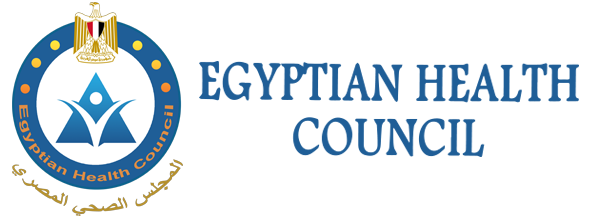The formation of the council of Directors shall be issued by a decision of the Prime Minister, and the management of the council shall be headed by the Executive president, Prof. Mohamad Mustafa Lotayef, and the membership of each of the following:



















is the authority responsible for the affairs of the council, conducting its affairs, and managing the business and activities it undertakes. It may take whatever decisions it deems necessary to achieve its objectives, and in particular the following :
1- Implementing general policies and master plans approved by the council of Trustees.
2- Setting and supervising the criteria, procedures and rules for exams that qualify for obtaining a license to practice medical professions and the Egyptian Board, in coordination with the competent authorities, and approving them, all in accordance with what is determined by the executive regulations.
3- Adoption of scientific, vocational training and higher health specialized programs for post-university education, and approval of professional certificates for those who pass these programs in the various branches of medical health work from the concerned training authorities accredited by the Council.
4- Exchanging recognition of professional certificates approved by the Council with its counterparts in various local and international bodies.
5- Setting specifications and standards for medical institutions that possess the elements of post-university training in health fields with their various specializations, and following up and evaluating their health practices as determined by the executive regulations.
6- Approving the organizing rules, specifications and conditions for training venues, and approving the supervisors.
7- Develop periodic monitoring systems for the quality of vocational education and clinical training in accredited institutions, as determined by the executive regulations.
8- Setting standards and requirements for trainers, and monitoring their implementation, as determined by the executive regulations.
9- Setting standards for the content of specialized health training at various levels of health professions, and for all health specializations, as determined by the executive regulations.
10- Setting criteria for evaluating workers in various health specialties, to ensure that they complete the appropriate training as specified by the executive regulations.
11- Setting the necessary standards for the application of professional ethical charters, to achieve safe health practices, and work to monitor them, in coordination with the Ministry of Health and Population, the Supreme Council of University Hospitals, and the Medical Services Department of the Armed Forces, and in accordance with what is determined by the executive regulations.
12- Contracting with local authorities specialized in updating the training and evaluation system, as well as similar foreign agencies in light of the rules approved by the council of Trustees.
13- Create records for workers in the public and private health sectors, as determined by the executive regulations.
14- Work to establish national records for diseases and medical interventions, as determined by the executive regulations.
15- Approving the organizational structure of the Council and its job schedules.
16- Proposing financial, administrative and technical regulations for the Council, personnel affairs regulations, contracts and procurement, and other internal systems without being bound by the laws, regulations or decisions in force in the administrative apparatus of the state or in any other party.
17- Developing the draft annual budget and final account of the Council and presenting them to the council of Trustees.
18- Accept gifts, donations, subsidies, and grants in light of the rules and decisions issued by the Board of Trustees and in a manner that does not conflict with the purposes of the council.
19- Formation of scientific committees and specialized committees for the national medical records of various diseases and epidemics, committees for evaluation and internal review, for human resources, for medical ethics, for caring for the rights of members of the health professions, for guidelines for medical interventions, for professional development, and for examinations, as determined by the implementing regulations.
20- Considering all issues that the council of Trustees deems important to present to the council of Directors.
Others achieve the objectives of the Council.
